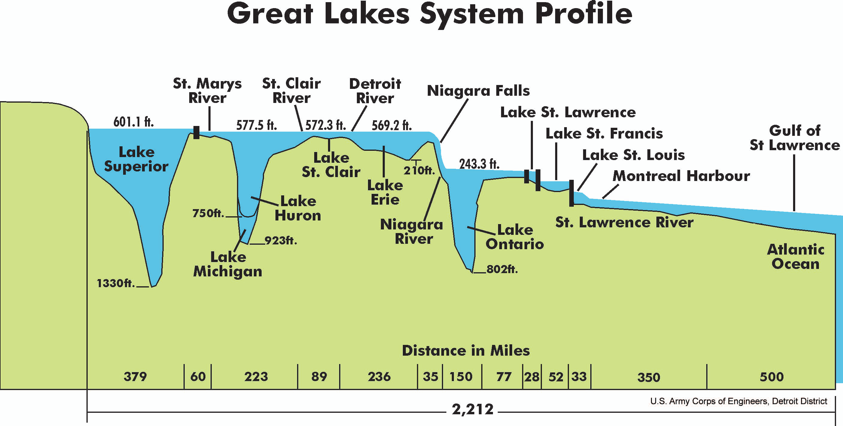Radioactive nuclear waste buried beside 21% of the world's fresh water supply defies common sense
Reasons To Be Concerned
1. Radioactive Waste Beside Lake Huron?
William Fyfe, a retired University of Western Ontario professor who is an international consultant on nuclear waste, is among those who have expressed concern about the project. "You do not put nuclear waste near things like the Great Lakes or the great rivers in case there's a leakage that you haven't expected."5
"It is universally acknowledged that nuclear waste must be kept away from water circulating through the environment of living things, since water is seen as the main vehicle for eventual dissolution and dissemination of radiotoxic pollutants."6
The nuclear wastes to be buried near the lake include highly radioactive and chemically hazardous material.
OPG documents state that "Most of the waste packages are not designed to be long-lived. As they corrode or are damaged by rock fall, the wastes are exposed and the radioactivity can be released." And further states "People living on or near the site could be exposed to the contaminants…"7
Great Lakes communities in Canada and the United States obtaining drinking water from the Great Lakes should be deeply concerned about OPG's plan to bury radioactive nuclear waste beneath the Bruce Nuclear site on the shores of Lake Huron. Degradation of the site over time or a serious accident or incident at the underground Nuclear Waste Dump site would affect Lake Huron and all interconnected waters of the Great Lakes (see map below).

5 http://www2.canada.com/ottawacitizen/news/story.html?id=f9ff8432-c3e9-41e2-877a-a9fc43a13aac&p=2
6 http://www.glu.org/en/announcement/huron-declaration
7 Ontario Power Generation, Deep Geologic Repository for Low and Intermediate Level Radioactive Wastes - Environmental Impact Statement: Main Report, Volume 1, 00216-REP-07701-00001 R000, Section 9.2.1
